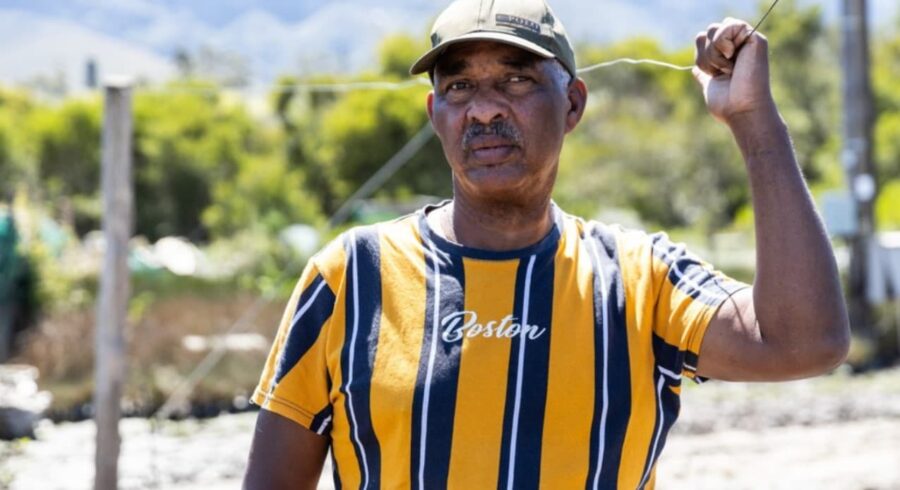
Western Cape floods: Small-scale farmers suffer devastating losses
At a Genadendal farm, nearly 500 chickens drowned, and over 50 pigs are missing

Small scale, emerging farmer Johannes Arendse was only able to access his communal farm outside Genadendal for the first time on Friday, after the Western Cape storm flooded the farm last weekend.
Nearly 500 chickens drowned, over 50 pigs are missing, and several calves and two dogs perished in the storm.
“Everything was underwater. Everything. It was over a metre deep,” said Arendse. It was the worst storm he has experienced in 25 years farming in the area, he said.
When GroundUp visited the farm on Monday, the entry road was almost inaccessible. Several areas of the farm were still submerged. Workers were busy trying to salvage what they could. Some were burying dead livestock.
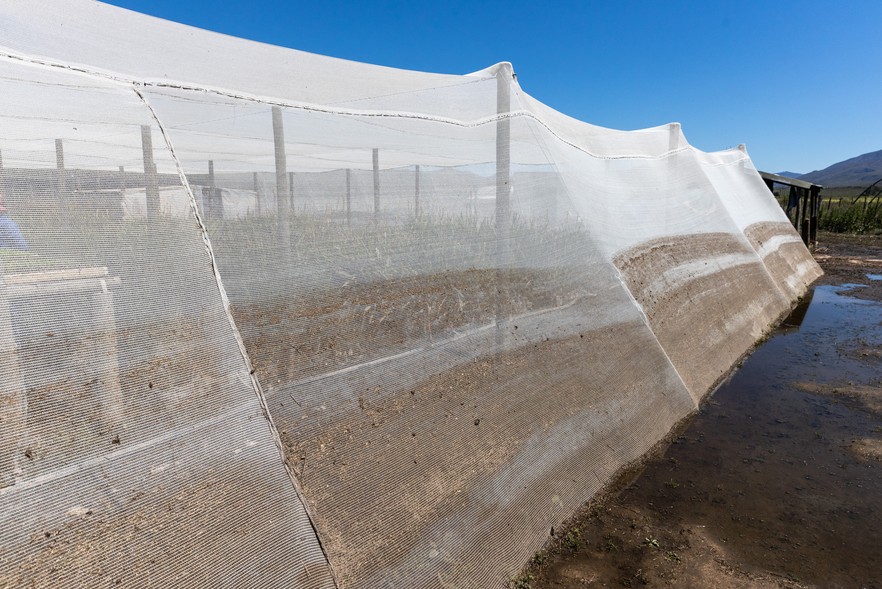
The farm, located between Genadendal and Greyton, supplies vegetables to the Greyton market, as well as the Epping and Mowbray markets in Cape Town.
“We didn’t realise the water would come up like this,” said Arendse, indicating the flood line visible on the plant nursery netting. Plants that had stood on tables survived.
He said the evening before the storm, they opened the livestock pens. Some animals moved to higher ground, others stayed in their pens and perished in the storm. He said many piglets were missing.
“There is one which came out of the bush here, but we can’t find the others … anywhere,” he said.
The organic vegetable garden beds were still partly underwater. Only time will tell if the plants survive.
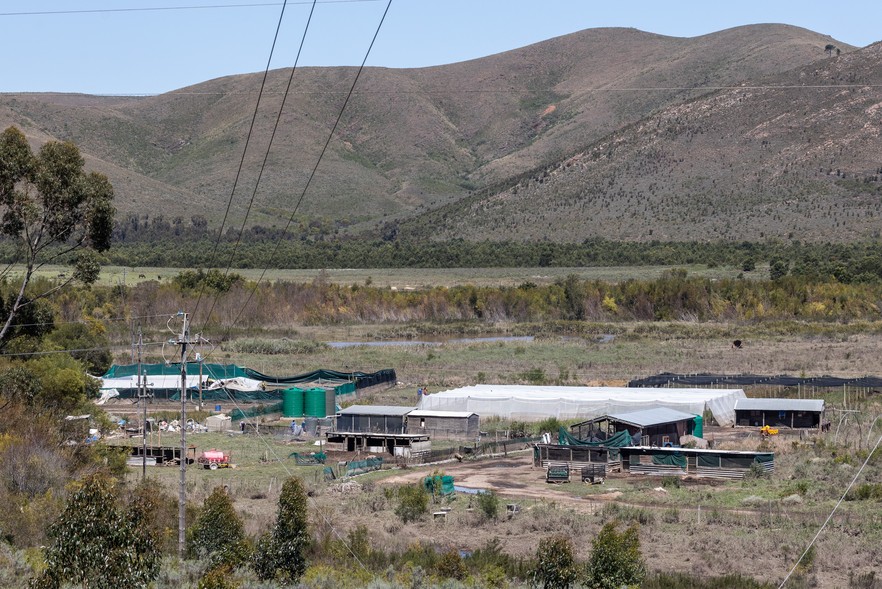
farm is run communally by seven small-scale farmers
The farm is run communally by seven small-scale farmers from Genadendal and employs a further 12 farm workers. Damage to infrastructure, including a chipper and chaff cutter that washed away, will run into hundreds of thousands of rands, said Arendse. He said they had no insurance for such a disaster.
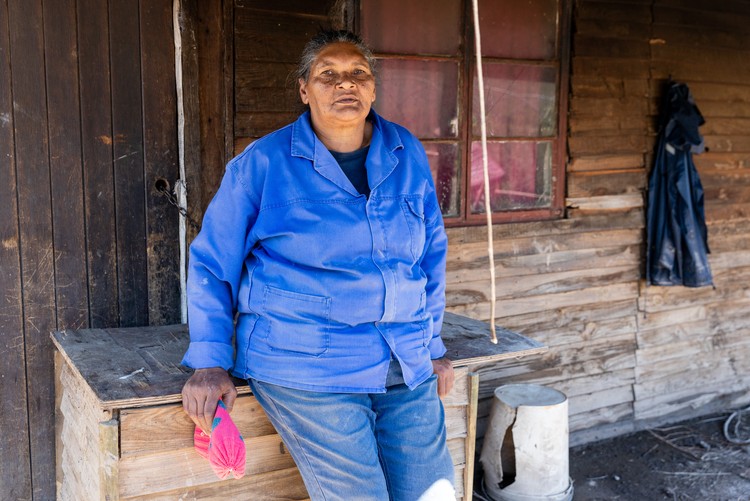
washing mud off the indigenous river plants
Jacqueline Swartz, who works on the farm, said that they managed to retrieve many seedlings, “but we don’t have soil to plant … It’s too wet”.
Swartz said that they have been washing mud off the indigenous river plants they grow for a replanting project after alien species are removed.
“The water is going to stand for a long time. We will see if the plants will survive the mud,” she said.
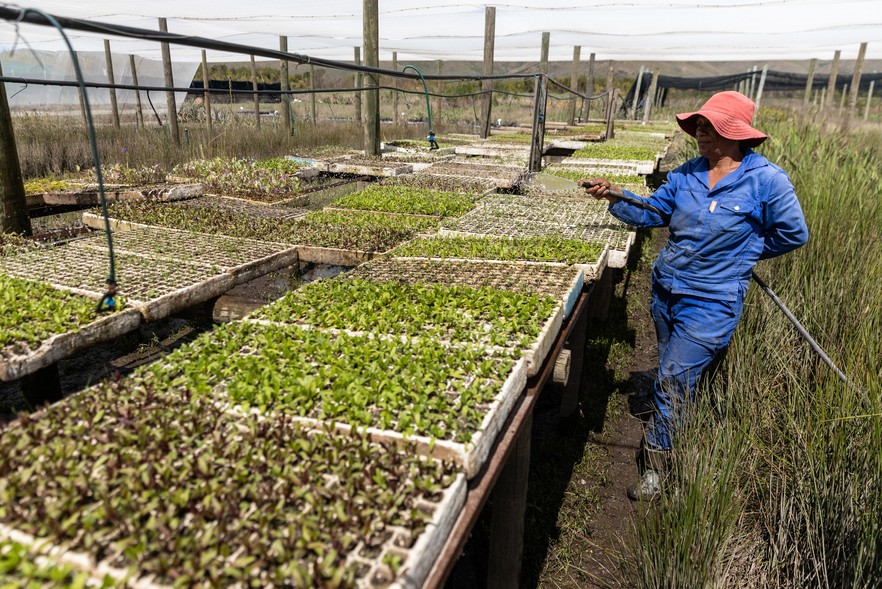
livestock buried under the sand
Several small-scale farmers in the area, including Roberton and McGregor, have been devastated, said Robert Andrews of the Trust for Community Outreach and Education Western Cape Food Sovereignty.
“Everything they did themselves and learnt to do themselves,” he said.
McGregor is still cut off after its access bridge washed away.
“It was very heartbreaking to see the small-scale farmers dig out the livestock buried under the sand,” said Denia Jansen, from the Women’s Rural Legal Centre, who lives in McGregor.
Jansen said the town’s ATMs have run out of money and supplies are running low.
Gift of the Givers has come to the aid of the town.
Parts of the N2 are still impassable and large detours have to be taken to get to Caledon, Greyton and Genadendal.

Wouter Kriel, spokesperson for the for local government MEC Anton Bredell told GroundUp: “The Province is currently recovering and assessing damages. This will take some time and we will be repairing damaged infrastructure as fast as budgets and manpower allows.”
He said that accessing funds from the National Disaster Management Centre is “a lengthy process”, and “although we will be doing the assessments and submissions, it is impossible to say when or how much we can expect to get”.
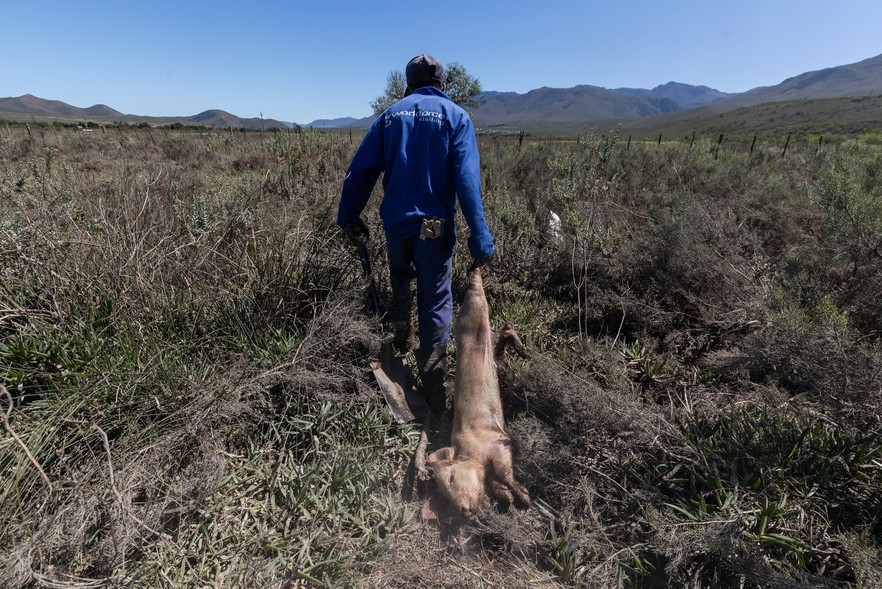
ALSO READ: Breaking: Mayor declares ‘major incident’ for parts of Cape Town after storm and floods
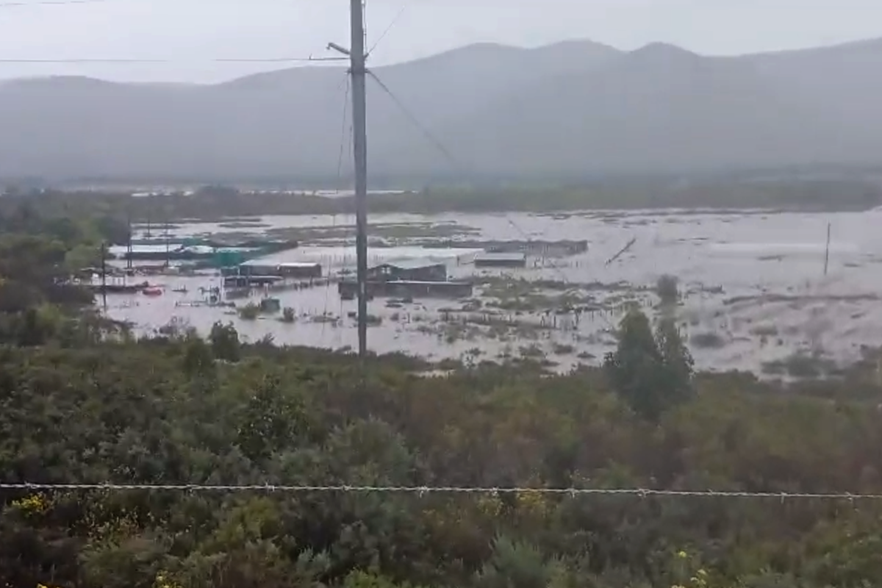
Published originally on Groundup | Text Liezl Human Photos Ashraf Hendricks
